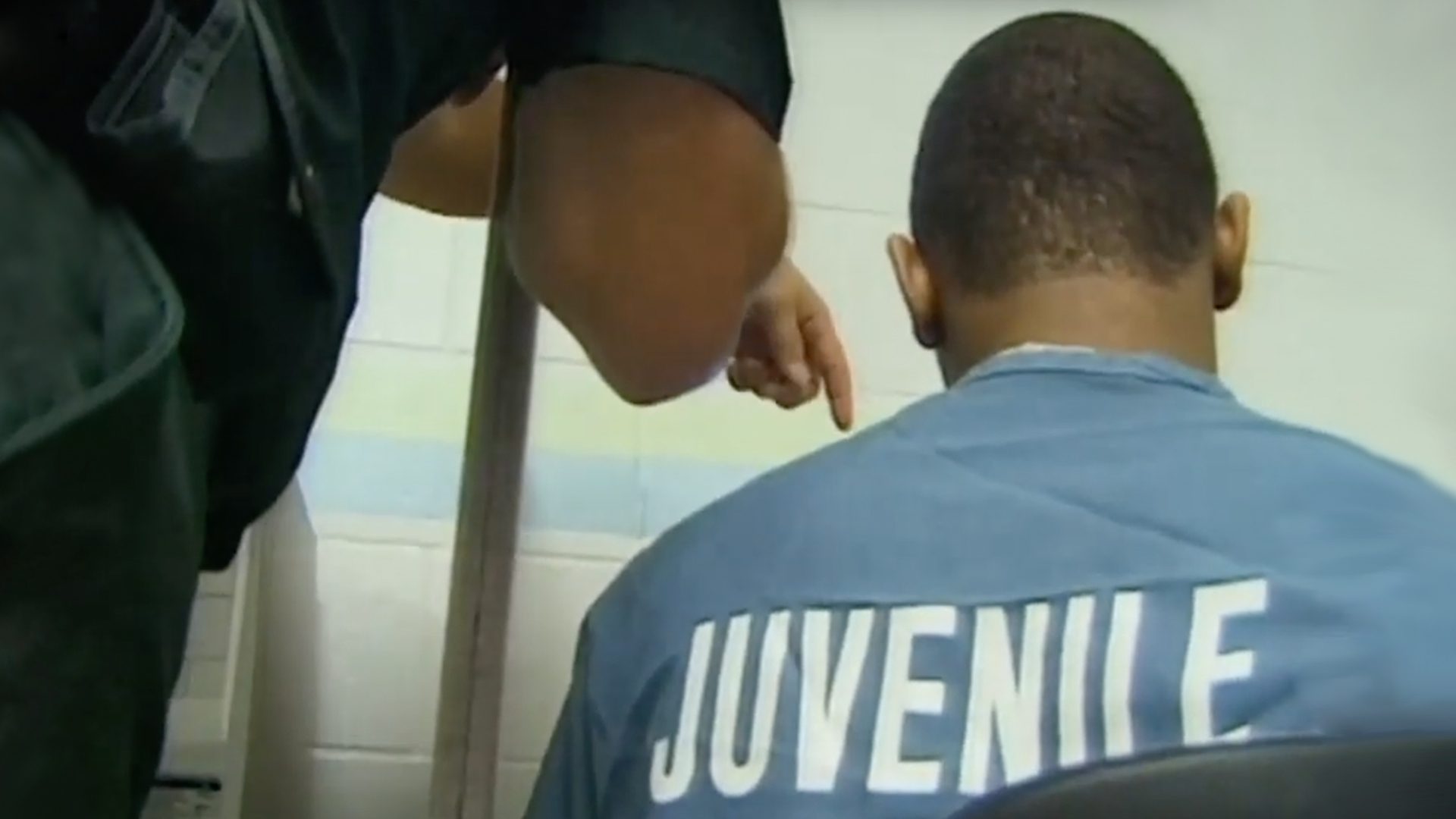- December 11, 2019
- By Maryland Today Staff
About 300 inmates sentenced as juveniles are still incarcerated in Maryland prisons despite a Supreme Court ruling that mandatory life sentences without parole for juvenile offenders are unconstitutional, according to a new project by the Howard Center for Investigative Journalism that premiered on “PBS NewsHour” and online yesterday.
The center’s second project, “Growing Up Behind Bars,” is a collaboration between UMD’s Capital News Service (CNS) and PBS. It marked CNS’ third partnership with the public broadcaster.
The “NewsHour” story was researched, shot and edited by Philip Merrill College of Journalism students, and reported on-air by PBS senior correspondent John Yang. It shows that students can use today’s technology and collaborate with seasoned correspondents to produce professional-quality work, said Eleanor Merrill Distinguished Visiting Fellow Tom Bettag, one of the faculty leaders of the project.
“The three stories we’ve done with ‘NewsHour’ illustrate the contribution journalism schools can make,” he said. “At a time when budgets and staffs are short, students are eager to get experience. Properly led, they can be great researchers.”
The investigation examined the state of juvenile justice in Maryland—where Gov. Larry Hogan’s parole of three men given mandatory life sentences without parole as juveniles were the first in more than two decades—as well as around the United States.
Although the Supreme Court in 2012 banned mandatory life-without-parole sentences for juveniles, U.S. courts can still hand down the sentence on a discretionary basis. More than 2,000 juvenile lifers remain in prison nationwide.
The Howard Center, with a mission to train the next generation of investigative journalists, is funded by $3 million from the Scripps Howard Foundation.
Josh Land contributed to this story.
Topics
Research